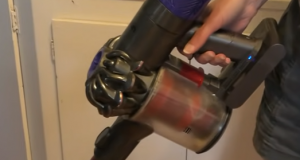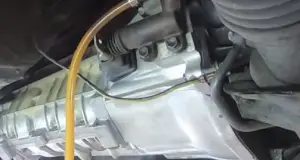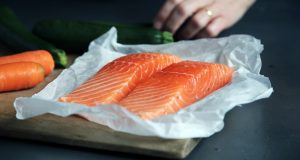How long does Vacuum Sealed Raw Meat last in the Freezer?
Vacuum closure is a great way to make your food last longer, but there are other benefits as well. For example, everyone knows that cooking meat requires a lot of preparation; you need to soak, marinade, season, and more. Vacuum sealing can also assist considerably reduce preparation time, and you will be amazed at how long the vacuum-covered meat can stay in the refrigerator.
The Benefit of Vacuum Sealing of Foods
- Raw meat – You can store raw meat for up to 10 days when the vacuum is packed before it needs to be cooked or frozen. In comparison, raw meat that has not been vacuumed will remain only 3-5 days in the refrigerator before turning.
- Frozen Meat – Fully sealed raw frozen meat can be stored in the refrigerator for 1-3 years, depending on the type of meat. Nonetheless, raw meat will survive only 1-12 months, depending on the meat.
- Shipping Benefits – Any food delivery service, food preparation provider, or perishable food delivery service to their customers can benefit significantly from the extended shelf life provided by installing a vacuum seal; this helps ensure that products will not be damaged during the shipping process.
Wand to expand the health of Normal Meat?
The shelf life of a vacuum-covered meat shelf is much longer than that of a vacuum-free meat shelf, which helps reduce waste and ensure that your customers receive a new, quality product. If you are looking for the right vacuum cleaner equipment for your needs, contact online stores. They will give you a perfect vacuum lid.
Refrigerator
Storing a bulk purchase or pre-cooked food for future use? Your refrigerator is well equipped to keep food fresh for a long time, but this place usually has some conditions that may affect your food composition, taste, and quality. Using a vacuum sealer and following proper freezing guidelines for each type of food can prevent refrigeration burns for a long time while maintaining the integrity of your food for a long time. Meat, such as beef, chicken, and fish, usually remains fresh for about six months when stored in the refrigerator using standard methods. However, you can extend that shelf life to about two to three years with the Food Saver Food Preservation System. Vegetables are also suitable for refrigeration, but it is essential to boil these foods (briefly cook food in boiling water, and then put them under running cold water) before closing the vacuum, as this may extend the shelf life from eight to eight months. About two to three years.
Freezer
Your freezer is not the only place where a vacuum lid can significantly impact food quality. For example, cheese usually lasts between one to two weeks if stored in bags and regular containers, but a vacuum sealer extends that length between four and eight months. The same goes for fruit and berries – while most fresh fruit stays for about one to six days in the fridge, they can stay fresh for about one to two weeks if stored with the Food Saver System. In addition, the National Center for Home Food Security has noted that storing fruit in a freezer can further increase the freshness of these foods.
Pantry
Dry food and baking ingredients are suitable for your pantry, but can they be closed with a vacuum? The answer is a resounding “yes” – you can not only use the Food Saver System but doing so greatly increases the time when these ingredients are always fresh. For example, flour and sugar may stay up to six months in the pantry, but keeping them in a vacuum sealer increases that distance to about one to two years. Rice and pasta may have similar effects – both can take up to six months if stored typically, but that number jumps for one to two years when the vacuum closes.
How often does the Meat stay longer in the Refrigerator?
Meat and other food groups are prone to decay due to the growth of harmful bacteria and fungi. If you leave them longer than a living shelf, germs or mold spread through the flesh. In addition, eating rotten meat can cause food poisoning, so you should always make sure that the meat you are cooking is safe to use. If in suspicion, do not consume it.
When storing meat, it is essential to note the different shelf life of raw meat it has. For example, if you buy solid meat products such as beef, veal, and chicken, it will usually last one to two weeks in your fridge.
New meat such as chicken, duck, and turkey will stay for about one to two days. On the other hand, new fish spoils after one to two days, and smoked fish can last two weeks.
How Long Can Filled Meat Freeze?
Vacuum closure gives rise to all categories of meat that last longer. Most meat products usually last between six and ten days. However, the length of time also depends on many other factors, including:
- Flesh burning
- Acidity level or pH
- The temperature of the refrigerator
- Marinade ingredients
- Sanitation and hygiene
- Lamination is used to clean the seal
In short, under ideal conditions, beef and veal can last up to six weeks after the vacuum closes. The meat will stay for two good weeks, while you can eat chicken and fish for at least one week.
Bottom Line
If you are in the industry selling or shipping meat, you should know about vacuum-closed meat shelves compared to the shelf life of vacuum meat products. Usually, meat products such as raw meat or edible meat will need to be cooked or eaten within a few days of purchase before the product is spoiled. However, meat products such as chicken, beef, fish, etc., can be stored for ten days before they need to be cooked or frozen. Vacuum closure works by removing excess oxygen, slowing down the digestive process, reducing waste, and keeping products fresh longer. Food preparation kits, specialty food suppliers, food manufacturers, grocery stores, and restaurants can benefit from vacuuming their meat products.




